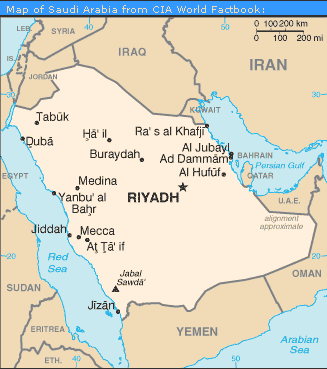Saudi Arabia’s nominal leader, King Fahd, assumed the throne in 1982. He is a son of King Abd al-Aziz, the founder of the modern Saudi state. Since Fahd suffered a series of strokes in 1995, his half-brother, Crown Prince Abdullah, has been the de facto Saudi ruler. The Al Sa’ud royal family is extremely large and wealthy, with literally hundreds of princes — some of whom are billionaires thanks to the country’s huge oil revenues. The monarchy recently began experimenting with local elections, the first since the 1960s. Women may not vote (or drive) in Saudi Arabia, and voter turnout was low; the local councils have limited power, and the royal family appoints half of the council members. Islamic candidates fared very well in the elections, a trend that many Arab countries have seen as of late. Supporters of a strong monarchy argue that it serves to curtail the extremism of Islamist politicians, who might foment revolutionary activity; the monarchists, fairly or not, point to Al Qaeda’s terrorist activities and desire to overthrow the kingdom. Others claim that political Islamic groups, unlike Al Qaeda, oppose violence, do not seek a theocracy, and have demonstrated democratic values compatible with Islam.
July 19th, 2005
Future for Lebanon
Map: Middle East Governments: Saudi Arabia
- Introduction
- Afghanistan
- Bahrain
- Egypt
- Iran
- Iraq
- Israel
- Jordan
- Kuwait
- Lebanon
- Oman
- Pakistan
- Palestinian Territory
- Qatar
- Saudi Arabia
- Syria
- Turkey
- United Arab Emirates
- Yemen


